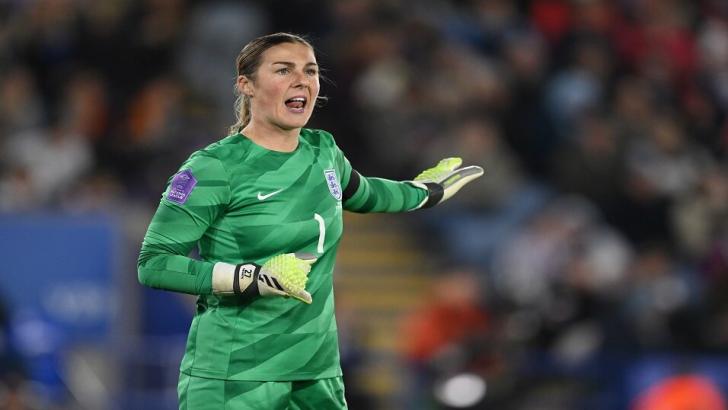How Important Are Injuries Of Players And Suspensions In Predicting Sport Results?
Player injuries and suspensions are crucial when it comes to making predictions about sports’ results. This is a significant element in determining the sports team’s performance.
Key Players: A lack of key players could seriously weaken the effectiveness of an entire team particularly in the case of superstar players or play crucial positions.
Depth of Squad: Teams that have lower depth might struggle with injuries and suspensions, since replacements could not match the quality of the players they first choose.
Tactical Adjustments
Coaches could be forced to alter their team’s tactics or formations to accommodate missing players. This could disrupt team flow and efficiency.
Role changes could be a problem for players who are still playing in the team. They might have to learn new roles, and this can affect their performance.
Psychological Effect:
Morale of the Team A lack of key players can influence the morale and faith of the other squad players.
Confidence of Opponents may feel more confident in facing a weakened group.
Historical and Statistics Data
Past Performance- Historical data is used to evaluate the impact of a certain player’s absence. Certain teams have backups and reliable systems, while others may have issues.
Game Context
Importance of a Match – The importance of a match (e.g. regular season or. postseason) can affect the way a player’s absence will impact the team. In critical games teams could have more motivation or strategies to deal with absences.
The strength of your opponent. The strength of your opponent is crucial. A stronger team may be able to exploit gaps better than a weaker one.
Return and Recovery
Knowing the expected recovery time and severity of an injury is essential. Short-term absences may have a distinct impact from long-term injuries.
The Player’s Form Following Return: Players who return after injury or suspension may require time in order to recover their full strength. They might also require more match-readyness. These elements could affect future performance.
Market Reactions
Betting odds: The changes in the odds of betting are usually due to injuries and suspensions. They reflect the perception of impact these events can have on the chances of winning for a team. These market reactions provide more insight into the importance of absences.
Suspensions and injuries to players have a significant impact on predicting the results of sports. The effects of suspensions and injuries could affect the team’s strategy, dynamics and overall performance. So, it’s crucial to consider them along with other aspects like the physical form of the athlete, their head to head record, and the external conditions. Have a look at the best wta tennis predictions for blog recommendations.

What Is The Importance Of Think About Strategic And Tactical Aspects When Attempting To Predict Sporting Results?
When attempting to predict sports results, tactical and strategic considerations play a major role. Planning and executing strategies that target an opponent’s weaknesses while maximizing a team’s strengths is crucial. This article will provide a thorough explanation of how these aspects are important: Maximizing Strengths and minimizing weaknesses:
Matchups are frequently the key to effective tactics. A football team might employ a fast winger to counter a slower full-back.
Adapting To Conditions: Strategies can be modified based on circumstances, like the weather, surface and the location. This allows a team to maximize its strengths.
Flexible and adaptable:
Modifications in-game: Teams that are able to adjust their game plan during play are more likely to win. This can include tactical changes and changing formations.
Opponent’s Strategy: Teams who effectively counter their opponent’s strategy are more likely to win. Knowing and anticipating their strategy of the opponent can help reduce their strength.
Offensive and defensive strategies:
A well-organized defensive structure: Effective defensive strategies, such as high pressing or deep defending can deter the attacking of an opponent. Teams with good defensive structures tend to concede less goals.
The ability to attack in a variety options, whether through swift counterattacks, possession plays or specialization at set pieces, can allow you to beat even the most well-organized defense.
The roles of teams and players:
Role Clarity – Clearly defined roles within the team will ensure that all players know the roles they play. This clarity is essential in executing the overall strategy.
Key Players – Employing key players to maximize their impact can be important. For instance the role of a playmaker or a attacking target player.
Analyzing the historical and contextual aspects
Past Meetings: Looking back at the strategies teams used to approach the previous meetings can provide insight into potential game plans and the outcomes.
Current Form: The tactical considerations should be in line with the current team form as well as the individual player’s. The team’s form could have changed, and a strategy from the past that has worked may require a change.
Psychological impact:
Confidence and Preparation: Well-prepared teams are more clear on their strategies. They also play with greater confidence. This mental edge is essential in games that are tight.
Interrupting your opponent. An effective strategy could frustrate a foe and cause them to make mistakes and lose their confidence.
Sport-Specific Considerations:
Soccer: Set-piece patterns forms, pressing styles and formations (e.g. 4-3-3 or 3-5-2) are all vital. The choices in tactics can affect midfield control, wide area exploit, and the ability to break defensive lines.
Basketball: The significance of strategies like zone defense and. an a man-to-man defense, pace, and offensive plays (e.g. the pick-and-roll play or the isolation play) is essential.
Cricket: The field position, the bowling rotations and the batting order may have a significant impact on the result of a match, especially in different formats such as Test matches or T20.
Coaching and Influence on Management
Tactical Knowledge – The coach’s ability in developing and implement strategies that work and comprehend the game is a crucial aspect in determining the team’s performance.
Team Buy-in: The extent to which the players are aware of the tactical plan and buy into its implementation. The implementation of strategy is key.
In conclusion, the strategic and tactical aspects are essential to forecasting outcomes in sports. They influence every aspect of the game, from individual performance to overall team dynamics. A deep understanding of tactic, when coupled with the analysis of injuries, the way you play and many other factors, can provide a comprehensive base for a precise prediction. Follow the top wta tennis predictions for more recommendations.

How Important Is The Role Of Coaching And Management In Trying To Predict The Outcome Of Sports?
Predicting the results of sports depends on the coaching and management of athletes. The influence of a manager or coach is more than just tactical setup to encompass motivation leadership, motivation and the overall vision of the team. Here are some reasons why coaching and managing is essential:
Game Plans: Coaches design and implement game plans that are designed to exploit opponents’ weaknesses and capitalize on their team’s strengths. Effective tactics can have a significant impact on the outcome the game.
Adjustments during games: The capability to make strategic adjustments during the course of a game, for example strategic substitutions or shifts in formation, can turn the tide in favor of the team.
Player Development
Skill Enhancement: Coaches play the most important role in developing athletes abilities and enhancing their overall performance via individual coaching and training.
Youth Integration: Effective managers are able to seamlessly integrate young talent into the main team, providing an abundance of talented players.
Motivation and Morale
Coaches or managers are responsible to inspire players and establishing an environment that is winning. They also maintain the morale of their team. Teams that are led by a strong leader tend to be more efficient when under stress.
Becoming a Hero – The ability to keep team cohesion and spirit during difficult times like losing streaks, problems with injuries or other obstacles is essential for sustained performance.
Strategic Vision:
Long-Term Planning: Successful coaches and managers often have a clear long-term vision and focus on creating a team capable of sustained achievement rather than just making temporary results.
Ability to adapt: The most successful managers adapt their strategies to change in circumstances like changing team dynamics or changes in the competitive landscape.
Man-Management Skills:
Individual Relationships. When players feel valued, and are respected by effective communication and relationship building with them, their performance will be improved.
Conflict Resolution: Managing conflicts within the team, be it between players, or between managers and players is vital to ensure an unison and focused team atmosphere.
Preparation and Analysis:
Coaches conduct an in-depth analysis of their opponents to identify important threats and devise specific strategies against them.
Self-Assessment. Continuously monitoring their team’s performances helps identify areas of improvement and adapt training and tactics accordingly.
Influence of club culture
Building a Winning culture The manager and the coach mold the character of a team by instilling qualities such as discipline, commitment and perseverance.
Legacy and Stability: Long-term successful managers can create a lasting legacy that contributes to the sustainability and reputability of the club.
Different Sports Examples:
Soccer: Managers like Pep Guardiola or Jurgen Klopp have a reputation for their creative tactics and their ability to inspire teams to always perform to a high standard.
Basketball: Coaches in the NBA like Gregg Popovich have a reputation for strategic insight and player development, which can lead to success.
American Football: Bill Belichick for instance is well-known for his ability to adapt during games and make important adjustments.
Effect on Team Performance
Consistency: Teams with top-quality coaching tend to perform better regularly throughout the course of a season and maintain a high standard of performance in different competitions.
Resilience – Good management allows teams to bounce back quickly after setbacks and maintain momentum throughout the entire season.
In the end, both management and coaching are the most important aspects in predicting results from sports. The capacity to make strategic choices and manage the players and their circumstances effectively, in addition to leadership skills can all have a significant impact on the performance of the team. By incorporating an assessment of management and the quality of coaching into your predictions for sports, you can make more precise and accurate predictions. 